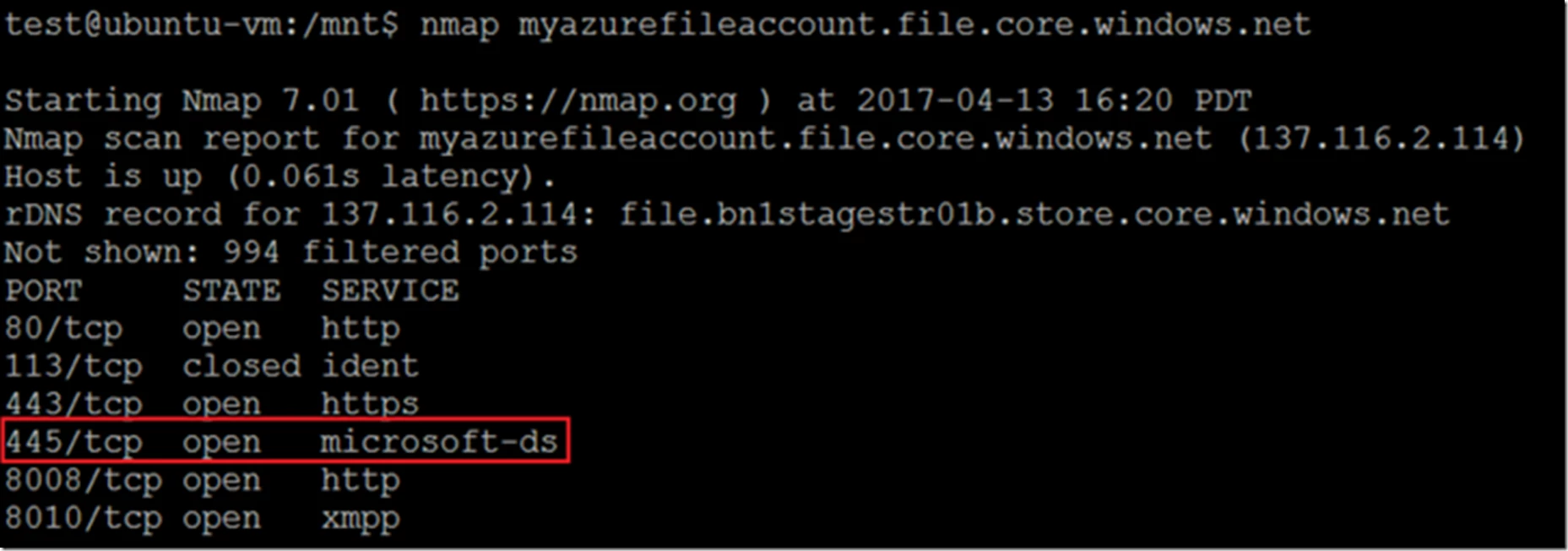Azure File Storage on-premises access for Ubuntu 17.04
Posted on
1 min read
Azure File Storage is a service that offers shared File Storage for any OS that implements the supported SMB Protocol. Since GA we supported both Windows and Linux. However, on premises access was only available to Windows. While Windows customers widely use this capability, we have received the feedback that Linux customers wanted to do the same. And with this capability Linux access will be extending beyond the storage account region to cross region as well as on premises. Today we are happy to announce Azure File Storage on-premises access from across all regions for our first Linux distribution – Ubuntu 17.04. This support is right out of the box and no extra setup is needed.
How to Access Azure File Share from On-Prem Ubuntu 17.04
Steps to access Azure File Share from an on-premises Ubuntu 17.04 or Azure Linux VM are the same.
Step 1: Check to see if TCP 445 is accessible through your firewall. You can test to see if the port is open using the following command:
nmap.file.core.windows.net

Step 2: Copy the command from Azure Portal or replace <storage account name>,
sudo mount -t cifs //.file.core.windows.net/ -o vers=3.0,username= ,password= ,dir_mode=0777,file_mode=0777,sec=ntlmssp
Step 3: Once mounted, you can perform file-operations
![clip_image001[8] clip_image001[8]](https://azure.microsoft.com/en-us/blog/wp-content/uploads/2017/04/a1d8c029-c47c-4dac-a25b-542b33a0cd71.webp)
Other Linux Distributions
Backporting of this enhancement to Ubuntu 16.04 and 16.10 is in progress and can be tracked here: CIFS: Enable encryption for SMB3. RHEL is also in progress. Full-support will be released with next release of RHEL.
Summary and Next Steps
We are excited to see tremendous adoption of Azure File Storage. You can try Azure File storage by getting started in under 5 minutes. Further information and detailed documentation links are provided below.
- Use Azure File on Linux
- Azure Files Storage: a frictionless cloud SMB file system for Windows and Linux
- Inside Azure File Storage
We will continue to enhance the Azure File Storage based on your feedback. If you have any comments, requests, or issues, you can use the following channels to reach out to us: